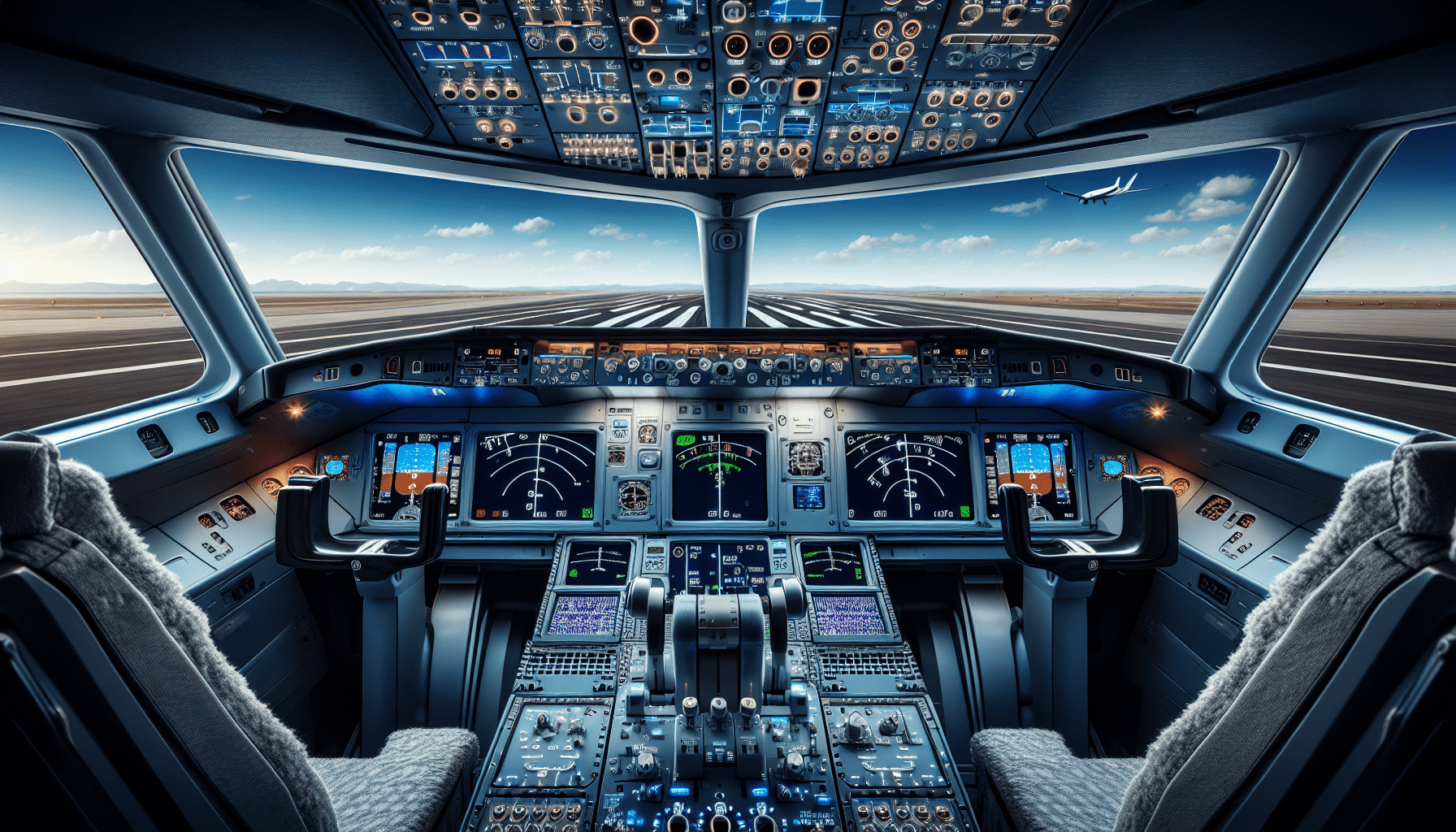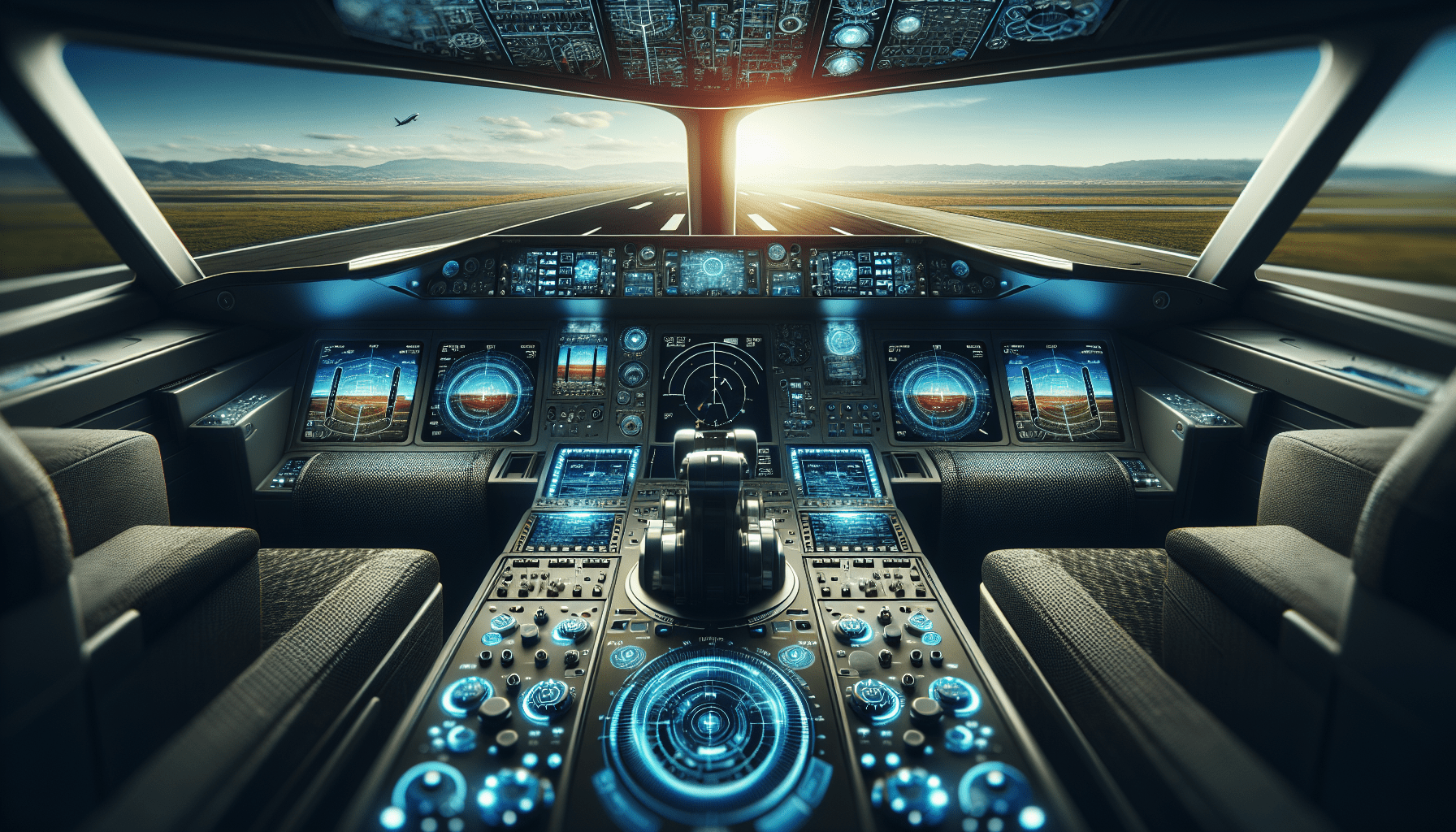Uygafly Birthday Gifts for 4 5 6 7 8 9 10 11 12 13 Year Old Girls,Easter Gifts for Teens Kids Daughter Sister Her,Fanny Pack Crossbody Bag Belt Bag Cute Trendy Stuff | Cream,A
$9.99 (as of April 23, 2025 06:52 GMT +00:00 - More info)Have you ever wondered how autopilot systems have revolutionized air travel? Sure, they assist pilots in cruising and landing, but taking off has always been a hands-on task—until now. Enter Embraer’s Enhanced Takeoff System (E2TS). This innovative advancement is poised to transform air travel by automating one of the most critical phases of flight: the takeoff. Hang on, because this is a leap into the future of aviation you won’t want to miss.

Shop These Accessories for a Comfortable Trip
The Dawn of Automated Takeoffs
You might find it hard to believe. For years, pilots have had to manage the takeoff phase manually, requiring their full attention and skill. Traditional autopilot systems kick in only after the aircraft is already airborne, providing assistance during cruising and even landing. But what if technology could relieve pilots of the considerable stress and precision required for takeoff too?
Unveiling at Farnborough International Airshow
The game-changer moment came at the recent Farnborough International Airshow when Embraer introduced its Enhanced Takeoff System (E2TS). Imagine the excitement as one of aviation’s most significant developments unfolded before an audience of industry experts, pilots, and enthusiasts. This software-based upgrade aims to steer Embraer’s E2-class jets automatically through the takeoff process, marking a monumental shift in aviation technology.
How E2TS Works
Understanding how Embraer’s Enhanced Takeoff System works can provide insight into just how far aviation technology has come. Let’s break it down.
A Symphony of Precision and Technology
E2TS functions through a patented software upgrade integrated into the flight control system. Once the aircraft is lined up on the runway, pilots engage auto-takeoff mode and autothrottle, then activate the autopilot. Essentially, they only need to push the throttles forward to initiate the autothrottle. The system then takes over, ensuring the aircraft rotates to its highest geometrical position while avoiding tailstrike.
Handling Engine Failures Like a Pro
What’s particularly astonishing is that E2TS can handle engine failures with remarkable precision. While traditional manual takeoffs leave significant room for human error, the automated system ensures consistent, optimal responses to various scenarios.
Maximizing Aircraft Range
E2TS isn’t just about safety; it’s also about performance. By fine-tuning the rotational phase, the system can improve the aircraft’s range significantly. For instance, at runway-limited airports like London City Airport, the system can increase range by up to 350 nautical miles.

Shop These Accessories for a Comfortable Trip
Benefits of E2TS: Safety and Efficiency
You may wonder why automate takeoffs in the first place. The benefits of E2TS range from enhancing safety to optimizing operational efficiency.
Enhanced Safety
Safety is paramount in aviation, and E2TS excels in this department. By reducing human error during takeoff—a critical phase in flight—the system dramatically minimizes the risk of accidents.
Table 1: Safety Features of E2TS
| Feature | Description |
|---|---|
| Avoids Tailstrike | Rotates aircraft to the optimal position to prevent tailstrike. |
| Engine Failure Management | Handles engine failures with precision, minimizing risks. |
| Consistent Takeoff Performance | Reduces variability, leading to safer takeoff procedures. |
Operational Efficiency
E2TS offers more than just enhanced safety. It also brings about better fuel efficiency and reduced maintenance costs, making it a valuable upgrade for airlines.
Table 2: Efficiency Benefits of E2TS
| Benefit | Description |
|---|---|
| Fuel Efficiency | 2.5% lower fuel burn compared to E1 systems. |
| Maintenance Savings | Optimized climb thrust means less wear and tear. |
| Increased Range | Enhances range by up to 500 nautical miles in some scenarios. |
Embraer’s E2 Series Upgrades
The E2TS is not an isolated innovation. It’s part of a suite of enhancements Embraer is rolling out for their E2-class airplanes.
Fuel Efficiency and Maintenance
In addition to the E2TS, Embraer’s new upgrades promise a 2.5% reduction in fuel burn. With optimized climb thrust, airlines are looking at lessened maintenance expenses and about 10% more engine time on the wing. It’s as if the new enhancements are taking efficiency and sustainability to new heights—pun intended.
What This Means for Pilots
So, how does all this technological advancement fit into the day-to-day lives of pilots?
Simplifying the Takeoff Process
Pilots can now focus more on monitoring rather than direct manipulation of controls during takeoff. With E2TS, the system handles the bulk of the task, significantly reducing pilot workload and stress.
Continuing Need for Skill
However, this doesn’t mean pilots will become redundant. The technology complements their skills rather than replacing them. Pilots still line up the aircraft on the runway and engage the necessary systems, ensuring they remain integral to flight operations.
FAQs About E2TS
Questions about this new technology are inevitable. Let’s address some of the most commonly asked ones.
Can E2TS Be Retrofitted to Older Jets?
Yes, one of the most appealing aspects of E2TS is its compatibility with older Embraer jets. Airlines don’t have to invest in brand new aircraft to benefit from this groundbreaking technology.
How Long Did It Take to Develop?
E2TS has been three years in the making. The time was well spent, developing and fine-tuning the technology to ensure it meets the highest safety and performance standards.
What Happens During an Engine Failure?
The system is designed to handle engine failure during takeoff with unmatched precision, maintaining optimal control and safety.
The Future of Air Travel
As E2TS prepares to go online in Q4 2025, it’s clear that the future of air travel is brighter than ever. With safety and efficiency significantly improved, both passengers and airlines stand to benefit from this revolutionary technology.
Looking Beyond Takeoff
While E2TS is a monumental leap for takeoffs, it also paves the way for further advancements in automated flight technologies. Future innovations may include even more sophisticated computer systems, making air travel safer, more efficient, and perhaps, even more enjoyable.
Final Thoughts
The introduction of Embraer’s Enhanced Takeoff System signals a new era in aviation. By combining cutting-edge technology with the critical takeoff phase, Embraer is not just enhancing safety and performance but also revolutionizing the way we think about air travel. So, the next time you’re gazing out of the window as your plane ascends into the sky, know that a marvel of modern technology might just be lifting you up.
Shop These Accessories for a Comfortable Trip






